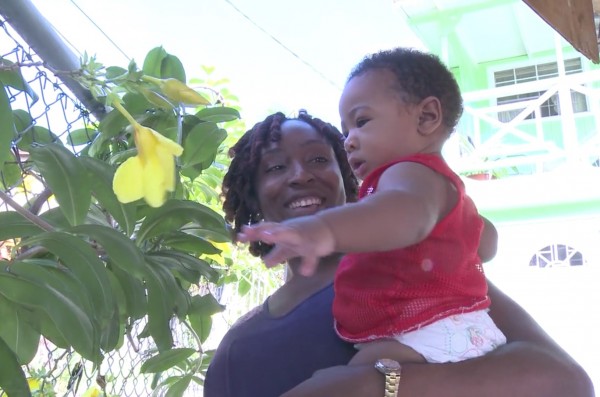New films about diabetes in pregnancy

Diabetes is considered to be the biggest global health crisis faced today. Around 422 million adults live with the condition, resulting in 1.5 million deaths per year, and these numbers are expected to double in the next 20 years.
But one type of diabetes that often goes unrecognized is gestational diabetes, which develops in pregnancy and affects an estimated 3.7 million births each year.
New films launched today
Today we launch Diabetes in pregnancy: Stories from Saint Lucia – new films that tell the stories of women affected by diabetes during pregnancy. Shot in Saint Lucia with the help of the Saint Lucia Ministry of Health, Wellness, Human Services and Gender Relations and the and the Saint Lucia Diabetes and Hypertension Association, the films aim to raise awareness of gestational diabetes in pregnancy, how to manage the risks through healthy diet and exercise, and how to reduce your chances of developing type 2 diabetes later in life.
Permanent Secretary in the Ministry of Health, Cointha Thomas said, “Diabetes is one of the greatest health challenges facing our country, and little is known about gestational diabetes. This film will enable the Ministry to share lifesaving knowledge and strengthen our efforts to reduce the impact of this condition, helping to ensure more mothers and their babies are healthy in pregnancy and throughout their life course.”
These new films, available in English and Saint Lucian Creole, are part of a major drive to raise diabetes awareness in Saint Lucia and the Caribbean. They will be screened in hospital waiting rooms, antenatal clinics and in the wider community as part of a campaign to transform understanding of gestational diabetes, complementing a nationwide diabetes screening programme and training for diabetes specialists.
Anyone can watch or download the films for free – available in English and Saint Lucian Creole.
Films like these are dependent on your donations so please do support our work.
These films were produced with support from W Science and in collaboration with the Saint Lucia Ministry of Health, Wellness, Human Services and Gender Relations and the Saint Lucia Diabetes and Hypertension Association.